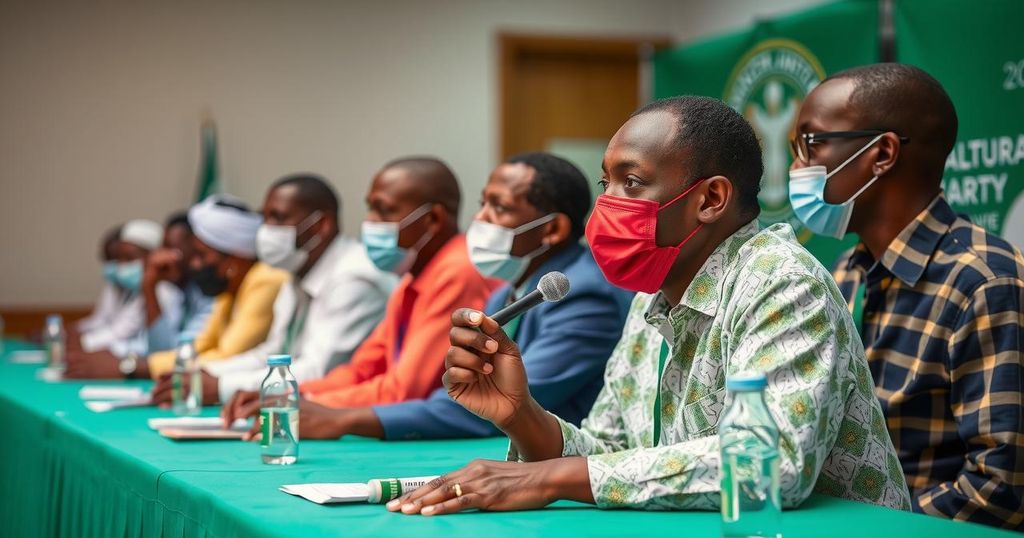Nigeria to Host Regional Summit on Lassa Fever Vaccine Development
Nigeria is set to host a summit on Lassa fever vaccine development on January 15, led by Prof. Muhammad Pate, the Coordinating Minister of Health. The conference aims to address public health risks posed by Lassa fever, which has seen thousands of suspected cases and numerous fatalities. The Health Minister emphasized cooperation across government sectors as crucial for improving overall health outcomes.
On January 15, Nigeria will host a regional conference focused on the development of a vaccine for Lassa fever, as announced by the Coordinating Minister of Health and Social Welfare, Professor Muhammad Pate. During an interview on Channels Television’s Sunrise Daily, Professor Pate emphasized Nigeria’s leadership role in West Africa regarding Lassa fever vaccine research. The initiative aims to create a solution to Lassa fever, an endemic disease posing a public health threat throughout Nigeria, which reported a total of 9,685 suspected cases, 1,187 confirmed cases, and 191 fatalities across 28 states by the end of 2024.
To combat the ongoing outbreak, the Nigeria Centre for Disease Control and Prevention activated the Lassa Fever Emergency Operations Centre last December. Lassa fever is an acute viral hemorrhagic illness caused by the Lassa virus, which is primarily hosted by the multimammate rat. Various rodents are also known to carry the virus.
Furthermore, Professor Pate indicated that improving health outcomes relies on collective efforts from all levels of government, communities, and individuals. He underscored the importance of fostering collaboration within the health system through performance dialogues and accountability measures among states and local governments. “What we’re building is coherence, collaboration, and cooperation between different levels of government,” he stated, highlighting its essential role in enhancing public health outcomes in Nigeria.
He acknowledged that education significantly influences health metrics, particularly in maternal and child health, due to the correlation between educational levels and vaccination rates. Additionally, he noted the interconnection between various ministries, mentioning the imperative role of sectors such as education, environment, and women affairs in holistic health improvement efforts.
In addressing issues related to insecurity that affect vaccination efforts, he remarked on the necessity of a cross-sectoral collaboration involving defense and military services. Professor Pate expressed a vision for a health system that encompasses not merely healthcare but also essential social determinations such as nutrition, housing, and sanitation.
Moreover, he emphasized the integral role of social welfare in Nigeria’s government initiatives, asserting that health is a vital component of social protection strategy. “If someone is not able to go to market or their workplace because they are ill… they can be tipped into poverty because of ill health,” he stated, stressing the importance of providing resources to prevent such occurrences. He further advocated for the establishment of a catastrophic health insurance fund under the National Health Insurance Authority, aimed at protecting vulnerable populations from the financial burdens of significant health expenditures.
The inherent connection between health, social welfare, and overall governmental responsibilities calls for a collective commitment to enhancing the well-being of all Nigerians, setting a clear path for integrated efforts towards improved health outcomes and social stability.
Lassa fever is a serious public health risk in Nigeria, endemic to the region and affecting numerous communities. The government is actively seeking solutions, including the development of an effective vaccine to curb its spread. With a significant number of suspected and confirmed cases each year, including fatalities, the urgency to address this viral hemorrhagic fever is critical. Health Minister Professor Muhammad Pate’s remarks reflect an overarching strategy not just limited to health systems but interconnected with educational, environmental, and social welfare efforts to enhance public health outcomes across Nigeria.
The regional summit on Lassa fever vaccine development in Nigeria signifies a critical effort to address this endemic health issue, with substantial implications for public health strategy. Professor Muhammad Pate’s insights underscore the interconnectedness of health, education, and social welfare, advocating for a holistic approach to improving population health outcomes. Collaborative measures among governmental entities and sectors are paramount in overcoming both health and social challenges impacting Nigeria. Such comprehensive strategies aim not only to alleviate the immediate health crisis but also to build a robust framework for sustainable health and social protection.
Original Source: punchng.com




Post Comment